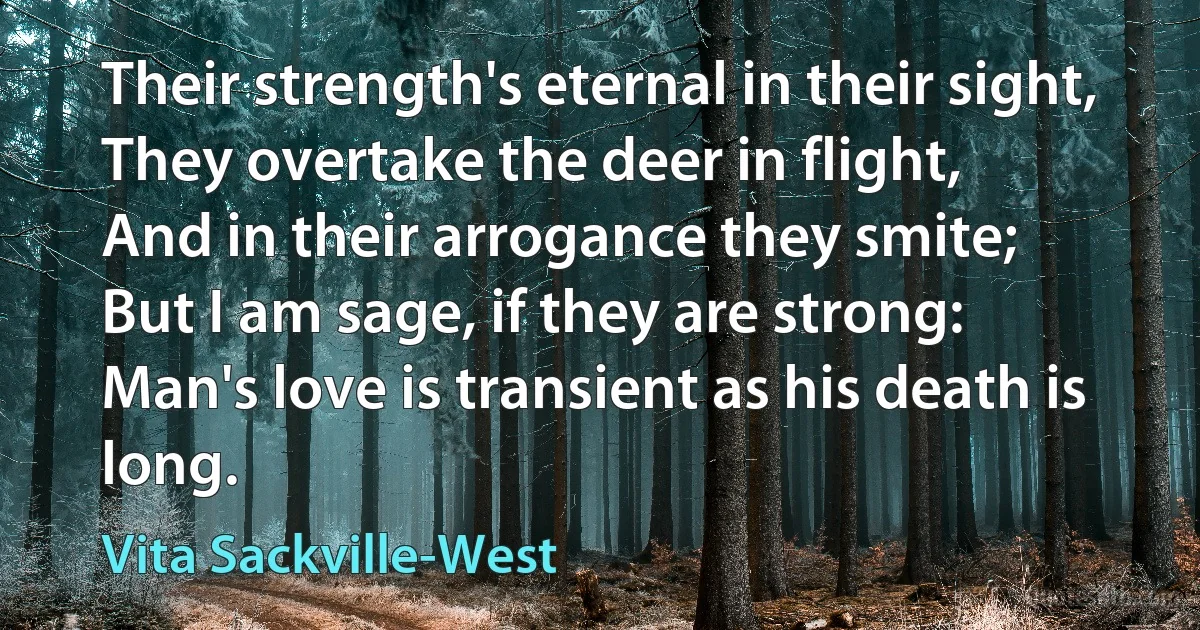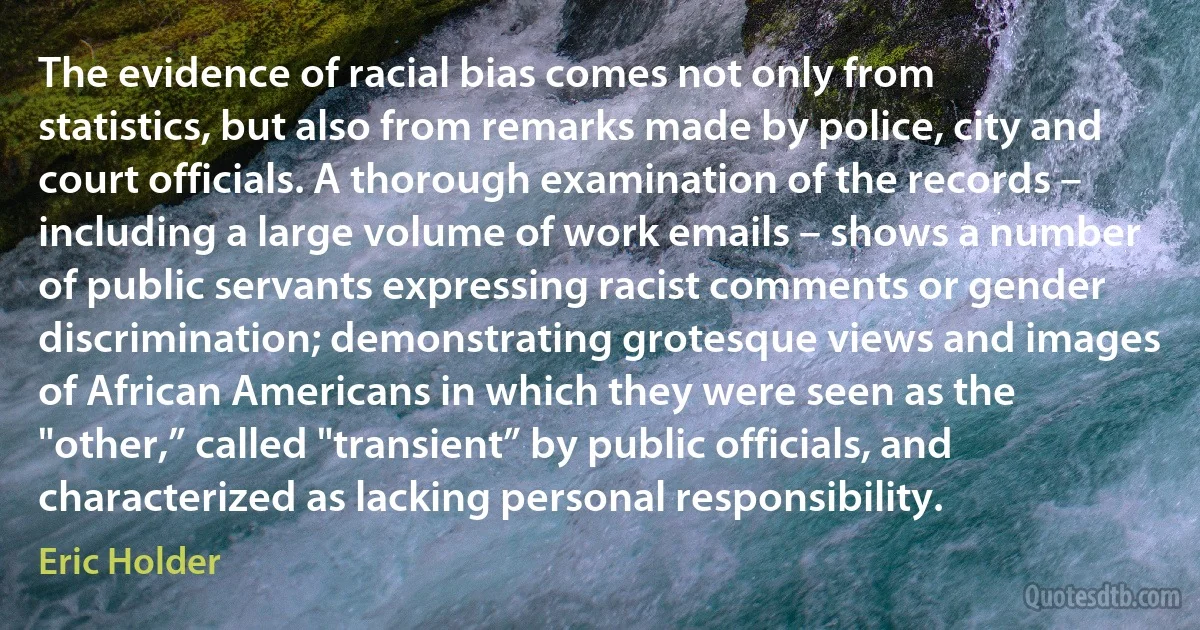Transient Quotes - page 3
Economic history has contributed significantly to the formulation of economic theory. Among the economists who have found history an important source for their ideas are Smith, Malthus, Marx, Marshall, Keynes, Hicks, Arrow, Friedman, Solow, and Becker. Failure to take account of history, as Simon Kuznets (1941) stressed, has often led to a misunderstanding of current economic problems by investigators who have not realized that their generalizations rested upon transient circumstances. Nowhere is the need to recognize the role of long-run dynamics more relevant than in such pressing current issues as medical care, pension policies, and development policies.

Robert Fogel
Because of the nature of the penis, men have performance anxiety, whereas no woman ever has to prove herself in this way. So men's egos are totally involved in performance, in doing, achieving. An erection is a kind of achievement. So is peeing. As I've said, a boy has to learn to aim in order to no longer be infantile. So it's an accomplishment. The male orgasm is short-lived and transient - and that's the irony of men's sexuality. It's ironic that feminism looks at the penis as power and violence when in fact it is very weak.

Camille Paglia
Placebo effects (plural) are mostly reporting bias, regression to the mean, investment justification, researcher bias, and other sources of self-deception. They are transient, and significant only for subjective symptoms where reporting bias can play a major role. Studies have shown, in fact, that there is no significant "healing" that occurs due to placebo effects - no objective biological improvement.

Steven Novella
The idea that voting is pointless, democracy a façade, and that no one is representing ordinary people is more resonant than ever as I leave my ordinary town behind. Amidst the guilt and anger I feel in the back of the Führer-mobile, there is hope. Whilst it's clear that on an individual, communal, and global level that radical change is necessary, I feel a powerful, transcendent optimism. I know change is possible, I know there is an alternative, because I live a completely different life to the one I was born with. I also know that the solution is not fame or money or any transient adornment of the individual. The only Revolution that can really change the world is the one in your own consciousness, and mine has already begun.

Russell Brand
Was that, too, destined to thrive awhile and decay and vanish, and be replaced by another, Nortekku wondered? Probably. The earth changes, he thought. Mountains rise, are ground to dust, give way to plains and valleys. Shorelines are drowned; new islands are thrust upward out of the sea. Civilizations are born, die, are forgotten. The planet alone abides, and all that dwells upon it is transient.
Contemplating these things, he felt much the richer for all his freshly acquired knowledge. He felt that for the first time he comprehended, at least some small way, the great chain of existence, stretching across time from misty past to unborn future.

Robert Silverberg
What is love? For the rabble love is a kind of variety, a transient vulgarity; the rabble's conception of love is best found in their obscene ditties, in prostitution and in the foul idioms they use when they are halfway sober, such as "shoving the donkey's foreleg in mud," or "putting dust on the head." My love for her, however, was of a totally different kind. I knew her from ancient times- strange slanted eyes, a narrow, half-open mouth, a subdued quiet voice. She was the embodiment of all my distant, painful memories among which I sought what I was deprived of, what belonged to me but somehow I was denied. Was I deprived forever?

Sadegh Hedayat
The personality market, the most decisive effect and symptom of the great salesroom, underlies the all pervasive distrust and self-alienation so characteristic of metropolitan people. Without common values and mutual trust, the cash nexus that links one man to another in transient contact has been made subtle in a dozen ways, and made to bite deeper into all areas of life and relations. People are required by the salesman ethic and convention to pretend interest in others in order to manipulate them. In the course of time, and as this ethic spreads, it is got on to. Still, it is conformed to as part of one;s job and one's style of life, but now with a winking eye, for one knows that manipulation is inherent in every human contact. Men are estranged from one another as each secretly tries to make an instrument of the other, and in time a full circle is made: one makes an instrument of himself and is estranged from it also.

C. Wright Mills
I dream of helping liberate my homeland from this transient medieval system of clerical rule. It is the Iranian people whose dream and decision will determine the final form of our future constitution and government. Having said that, and in view of my homelands culture and history, I am confident that a modern constitutional monarchy, similar to that of Japan, Spain, UK and Sweden, will be perfectly capable in institutionalizing democracy and help usher in modernity, progress and development.

Reza Pahlavi
Rachel was looking into the mirror at an angle of 45°, and so had a view of the face turned toward the room and the face on the other side, reflected in the mirror; here were time and reverse-time, co-existing, cancelling one another exactly out. Were there many such reference points, scattered throughout the world, perhaps only at nodes like this room which housed a transient population of the imperfect, the dissatisfied; did real time plus virtual or mirror-time equal zero and thus serve some half-understood moral purpose? Or was it only the mirror world that counted; only a promise of a kind that the inward bow of a nose-bridge or a promontory of extra cartilage at the chin meant a reversal of ill fortune such that the world of the altered would thenceforth run on mirror-time; work and love by mirror-light and be only, till death stopped the heart's ticking (metronome's music) quietly as light ceases to vibrate, an imp's dance under the century's own chandeliers....

Thomas Pynchon
It is true that God is necessity, or, as we may also put it, that he is the absolute Thing: he is however no less the absolute Person. That he is the absolute Person however is a point which the philosophy of Spinoza never reached: and on that side it falls short of the true notion of God which forms the content of religious consciousness in Christianity. Spinoza was by descent a Jew; and it is upon the whole the Oriental way of seeing things, according to which the nature of the finite world seems frail and transient, that has found its intellectual expression in his system. This Oriental view of the unity of substance certainly gives the basis for all real further development. Still it is not the final idea. It is marked by the absence of the principle of the Western world, the principle of individuality, which first appeared under a philosophic shape, contemporaneously with Spinoza, in the Monadology of Leibnitz.

Baruch Spinoza



